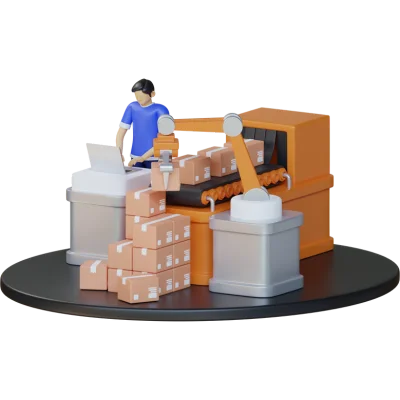Access to Vetted Talent
Save valuable time and resources by accessing a pool of candidates that have already undergone rigorous skill and background checks. Anicalls ensures that you receive profiles that align with your expectations and needs.


Providing a clear and comprehensive overview of the role's responsibilities and expectations.
Thoughtfully selecting and presenting a tailored pool of skilled candidates.
Engaging candidates in thorough discussions to understand their expertise and alignment with client needs.
Ensuring a smooth transition and effective collaboration as the consultant becomes an integral part of the client's team.
An RPA (Robotic Process Automation) Infrastructure Specialist is responsible for the underlying systems and technical environment that support the deployment, execution, monitoring, and scaling of RPA solutions in an organization. Their primary focus is ensuring that the RPA software runs smoothly, securely, and at optimum performance.
An RPA Infrastructure Specialist should have a strong background in IT infrastructure management, cloud platforms, and security. They should be familiar with RPA tools and their underlying technologies. Analytical thinking, problem-solving skills, and the ability to handle high-pressure situations are crucial for this role.
Anicalls manages the infrastructure needed for RPA deployments, ensuring scalability, resilience, and security.
Install, configure, and maintain RPA tools and platforms in various environments (development, testing, staging, production).
Design and implement infrastructure setups that can scale based on the organization's automation needs & Ensure bots running.
Implement security best practices for RPA platforms, ensuring that bots, processes, and data are protected with including managing user access controls.
Set up tools and procedures to monitor the health, performance, and logs of RPA tools and bots. Ensure there are alerts for any anomalies or failures.
Implement regular backup procedures for RPA tools, configurations, and related databases. Plan and test disaster recovery procedures.
Optimize the performance of RPA tools and the bots running on them. This could involve tweaking configurations, optimizing resources, or working with RPA developers to improve bot design.
Manage the versions of RPA tools and solutions. Ensure smooth deployment of bots from development to production environments.
Ensure that RPA tools integrate smoothly with other enterprise systems, databases, and applications.
Regularly review, test, and apply updates or patches to RPA tools and the underlying infrastructure.